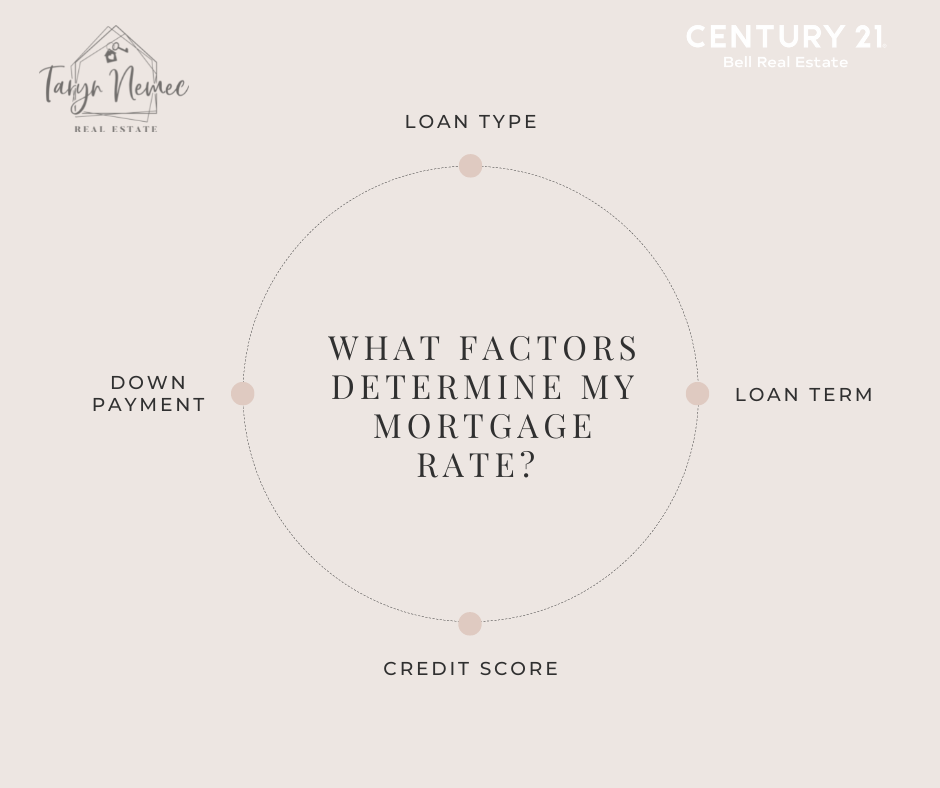Have you ever wondered how your mortgage rate is determined? When you cut back all the fluff and gibberish you come down to 4 major components. Your credit score, loan type, loan terms and amount of your down payment.
Every one of these components can change the amount of your monthly payments drastically and either cost you tons of money over the lifetime of your loan or save you a pretty penny.

Credit Score
Your credit score plays a big role in your mortgage rate. Freddie Mac says “when we build and maintain strong credit, mortgage lenders have greater confidence when qualifying you for a mortgage because they see that you’ve paid back your loans as agreed and used your credit wisely. Strong credit also means your lender is more apt to approve you for a mortgage that has more favorable terms and lower interest rates.” This is one reason to maintain a good credit score. A trusted advisor can help you focus on what needs work to help you raise your credit score quickly.
You can quickly check and monitor your credit score at Credit Karma.
Loan Type
Your loan type can change your mortgage rate. Each loan type offers different terms for qualified buyers. CFPB (Consumer Financial Protection Bureau) say: “There are several broad categories of mortgage loans, such as conventional, FHA, USDA, and VA loans. Lenders decide which products to offer, and loan types have different eligibility requirements. Rates can be significantly different depending on what loan type you choose.”
Loan Terms
Your loan term is another factor to take into account when looking to purchase your new home. According to Freddie Mac “When choosing the right home loan for you, it’s important to consider the loan term, which is the length of time it will take you to repay your loan before you fully own your home. Your loan term will affect your interest rate, monthly payment, and the total amount of interest you will pay over the life of the loan.” You should also consider the length of your loan.
Down Payment
Your down payment can make a major difference in what you pay month to month. Some loans don’t require you to put any money down and this can increase your monthly cost significantly. If you’re considering and looking at ways to lower your mortgage this is one way to do it. If you have a home already you can use the equity you’ve gained over the years towards your down payment. The CFPB explains that “In general, a larger down payment means a lower interest rate, because lenders see a lower level of risk when you have more stake in the property. So, if you can comfortably put 20 percent or more down, do it—you’ll usually get a lower interest rate.” See current interest rates here!
When everything is said and done these are just a few factors that can help determine your mortgage rate when buying a new home. Always consult with a trusted lender to see how to get the best deal for you!




Leave a Reply